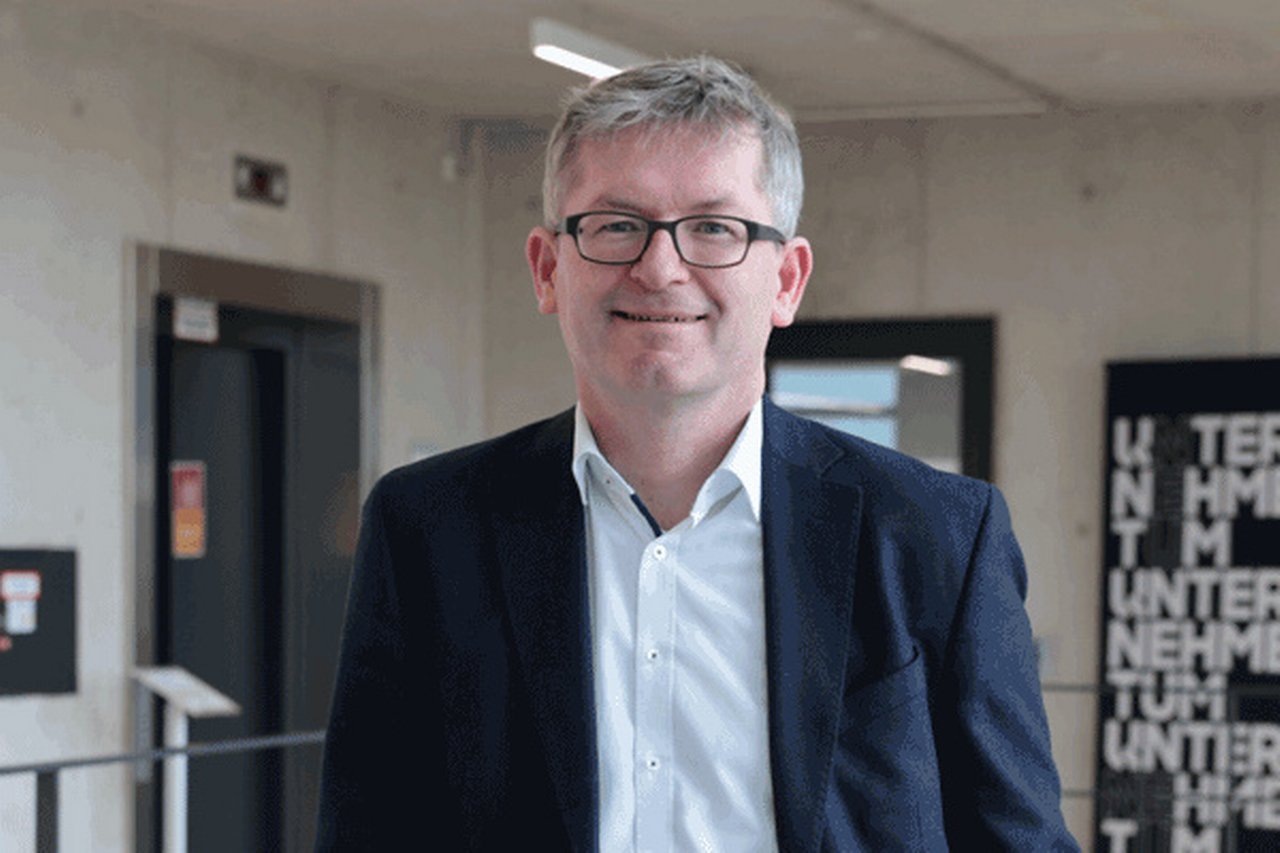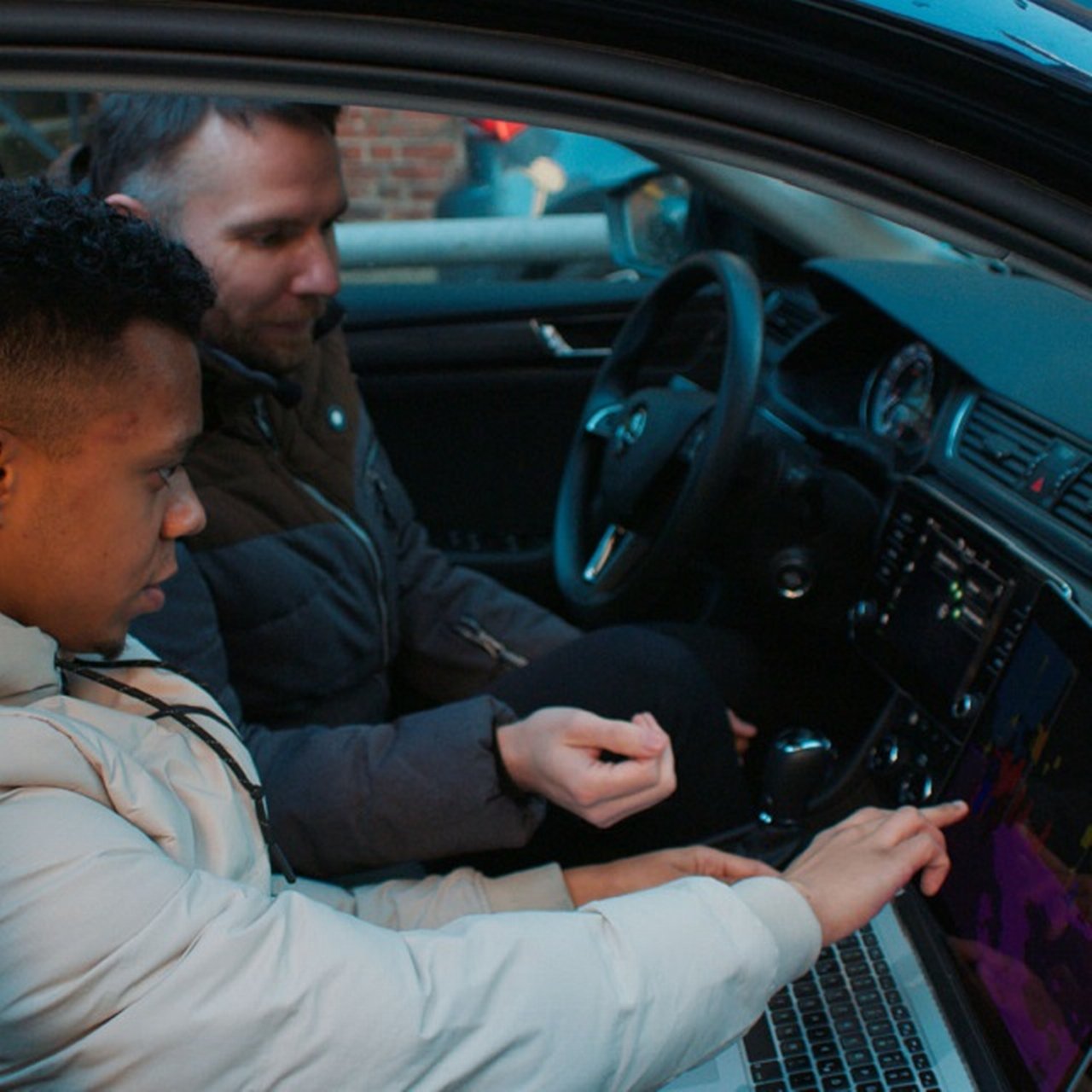No life in the cabin – the future with driverless trucks
Germany has a shortage of truck drivers – around 70,000 in the freight sector according to the Federal Association of German Bus and Coach Operators (BDO), with no improvement in sight. Every year, 30,000 drivers retire but only 15,000 join the industry. Could autonomous trucks be the solution? FERNRIDE, a Munich-based start-up, certainly thinks so. It has developed technologies and software for autonomous driving and a number of large logistics and transport companies are already using them on site.
Hendrik Kramer, co-founder and CEO of FERNRIDE, talks about when we will see self-driving trucks on our roads, how the job profile might change and what the advantages are of founding a logistics start-up in Europe.
Mr. Kramer, when will we see the first trucks without drivers on Germany's motorways?
Not for some time. First, the technology needs to be further developed – as does the legal framework. But as soon as that is in place, we could see the first autonomous and remotely monitored trucks on the road – not only in Germany, but all over the world. At FERNRIDE, we are starting at a point where we are in a position to be able to solve the challenges of the logistics industry today. That means autonomous, electric driving in logistics centres, production facilities and container terminals, for which we rely on a combination of artificial and human intelligence – the best of both worlds, so to speak. That's what we call “human-assisted autonomy”.
At some point, trucks will be able to drive autonomously in 99 percent of all cases. There are some especially difficult situations, however, that will always require human intervention from a control centre.

What kind of situations would these be?
I’m talking about situations that are new or unknown, in which case the vehicle will stop to make sure safety is maintained. The vehicle then needs to decide how to proceed and can request help from a remote operator, whose input can then speed up this decision process. They can either give the green light to continue driving or solve the problem themselves and operate the vehicle remotely.
Our customers in logistics need 100 percent reliability – and our product offers exactly that.
Where is the technology currently being tested if not on the road?
Cooperations and projects are currently underway at a number of logistics companies’ sites, including DB Schenker, Volkswagen and HHLA (Port of Hamburg and Logistics). Being private premises, controls are easy.
We have developed our technology together with companies from the logistics industry, where the need is great. In principle, our system could also be used in other types of vehicles – as long as they have a so-called "drive-by-wire" technology, which is where the brakes, accelerator and steering are not purely mechanical or hydraulic, but can be operated electronically. At FERNRIDE, we focus on trucks.
Anyone who founds a start-up in the field of autonomous driving needs a lot of money. Was that a problem in the beginning?
When you start a company like ours in Europe, it is important to proceed step by step.
We are lucky to have a start-up hub here in Munich at the Technical University. Besides having some incredibly talented students and a great education programme, a number of large car manufacturers and logistics companies are also part of the hub, all of whom are keen to see innovation in this field.
With this foundation, we have been fortunate to have an established relationship of trust. We developed and tested solutions together with large companies at a very early stage – and we had access to capital. The companies were basically our customers in the early stages.
Still, wouldn't it have been easier in the US, at least financially?
Of course, in particular the amount of venture capital is much greater in the United States. But there has been a clear shift in awareness here in Europe in recent years. In Germany, for example, we have a number of very ambitious and successful technology companies that want to change the world with their hi-tec solutions. And there are investors out there who have and still are providing capital.
At FERNRIDE, we've never had a real problem in terms of capitalization. For us, it was a huge advantage that we were able to work with companies like Volkswagen, DB Schenker or HHLA from the beginning as all of them have an extensive global network.
What about regulations and rules? Isn't there a lot of red tape in Europe?
We consider the strict requirements for cyber and vehicle security as well as reliability to be a competitive advantage. Anything that meets the requirements in Europe will also do so anywhere else. We are basically developing a global gold standard.
In other words, when we develop breakthrough technology and we are forced to maintain the highest standards and develop the best possible product, that is something that scales very well globally and that our customers really appreciate.
How will the European and global logistics industry change in the next five years?
On the one hand, the job profile of drivers will change. It will hopefully become more attractive. We will have fleet managers with more regular working hours who will be with their family at night. For this to happen, of course, the entire system will have to be automated and more electrified. It will be a gradual change; it won’t happen overnight. For the foreseeable future, we will always need a combination of human input combined with artificial intelligence.
As a European, I would like to see a future where our pension funds allocate more venture capital for technology companies in their growth phase – especially for advances in technology that drive societal progress. This would mean that Europe stays relevant as a location while also reaping returns for our pension system.
Recommended content
Booster for Europe’s start-up scene Booster for Europe’s start-up scene
Inspired by the vibrant start-up scene at Stanford University, Helmut Schönenberger set up a start-up hub at the Technical University of Munich 22 years ago. With the support of local businesses, it became a huge success. Now the model is set to set a precedent in Europe.
Digital Disruption | Video Story
How AI helps autonomous driving achieve a breakthrough Autonomous driving – breakthrough thanks to AI?
Autonomous driving is a big hope for the future, but accidents still cause concern. The start-up Deep Safety wants to make autonomous vehicles safe.
Entrepreneurial Success | Video Story
“Nickel doesn’t grow back” “Nickel doesn’t grow back”
Recycling metal scrap is by definition a sustainable business model but recycling alone does not guarantee resilience, as Cronimet has learned.
Responsible Growth | Video Story
Sustainability is always in fashion Sustainability is always in fashion
Spanish label Ecoalf is a pioneer in the industry, showing how stylish urban fashion can be both sustainable and profitable.





